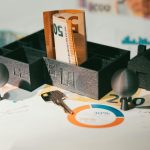Mortgage Loan Fraud Audits: A Comprehensive Guide to Safeguard Your Investments
Introduction
Mortgage loan fraud has become a pressing concern in today’s financial landscape. With the complexity of real estate transactions, many homeowners, lenders, and investors find themselves vulnerable to fraud schemes that exploit gaps in the system. A mortgage loan fraud audit is a specialized process designed to uncover discrepancies, misrepresentations, or outright fraud within a mortgage transaction. Whether it is an individual looking to protect their property or a lender seeking compliance, these audits are indispensable for financial security.
The U.S. mortgage market, valued at trillions of dollars, is fertile ground for fraudulent activities. These include inflated property appraisals, misrepresentation of borrower information, and undisclosed kickbacks. Each fraudulent transaction can lead to devastating financial consequences, from foreclosure to legal penalties. Fraud audits help expose these schemes, ensuring transparency and accountability in real estate dealings. They act as a safeguard, enabling homeowners and institutions to rectify errors or pursue legal recourse where necessary.
Moreover, the need for mortgage fraud audits extends beyond individual transactions. Regulatory bodies and financial institutions rely on these audits to maintain compliance with federal and state laws. This highlights the dual purpose of these audits: fraud detection and regulatory compliance. By conducting thorough investigations, they not only protect individual interests but also contribute to the stability of the broader financial system.
Understanding the intricacies of mortgage loan fraud audits is critical for anyone involved in real estate. This guide will provide detailed insights into their importance, processes, types, and the benefits they offer to individuals and institutions alike.
The Growing Threat of Mortgage Loan Fraud
Common Types of Mortgage Loan Fraud
Mortgage loan fraud manifests in various forms, each with unique methodologies and implications. One prevalent type is income fraud, where borrowers falsify income documents to qualify for loans they cannot afford. This often leads to defaults, leaving lenders at a significant loss. Another form is appraisal fraud, where property values are artificially inflated or deflated to manipulate loan amounts. This not only affects the lender but also distorts the housing market.
Equity skimming is another alarming fraud type. Fraudsters convince homeowners to transfer property deeds while claiming to resolve foreclosure issues, only to leave them in worse financial conditions. Identity theft also plays a role in mortgage fraud, with criminals using stolen identities to secure loans, leaving unsuspecting victims responsible for repayment.
Recent Trends in Mortgage Loan Fraud
Advancements in technology have introduced sophisticated methods for committing mortgage fraud. Online platforms are increasingly used for falsifying documents, while blockchain loopholes are exploited to manipulate property ownership records. These trends underline the evolving nature of fraud, making audits even more critical.
Impact on Lenders and Homeowners
The ramifications of mortgage loan fraud are far-reaching. Lenders face financial losses, reduced investor confidence, and reputational damage. For homeowners, fraud often results in foreclosure, credit score damage, and lengthy legal battles. The economic ripple effect also extends to communities, with fraudulent practices destabilizing local housing markets.
Understanding the Mortgage Loan Fraud Audit Process
What Is a Mortgage Loan Fraud Audit?
A mortgage loan fraud audit is a systematic examination of loan documents, financial records, and transactional data to identify discrepancies or fraudulent activities. These audits are typically conducted by forensic experts specializing in real estate and financial fraud.
Steps in the Audit Process
The audit begins with document collection, including loan applications, property appraisals, and financial statements. Auditors meticulously review these documents for inconsistencies, such as mismatched income statements or altered appraisal reports. Advanced software tools may be used to cross-check information against databases for further accuracy.
The next step involves interviewing relevant parties, including borrowers, lenders, and appraisers, to gather firsthand accounts of the transaction. Auditors also analyze market data to ensure property valuations align with regional trends.
Finally, auditors compile a detailed report outlining their findings, including evidence of any fraudulent activities. This report serves as a foundation for legal proceedings or corrective actions.
Tools and Technologies Used in Audits
Modern audits leverage advanced technologies to enhance accuracy and efficiency. Machine learning algorithms can identify patterns indicative of fraud, while blockchain analysis tools verify property ownership history. These technologies reduce manual errors and improve the reliability of audit outcomes.
Legal Implications of Mortgage Loan Fraud
Laws Governing Mortgage Fraud
Mortgage fraud is a federal offense in the United States, governed by laws such as the False Claims Act and the Financial Institutions Reform, Recovery, and Enforcement Act (FIRREA). These laws impose severe penalties, including hefty fines and imprisonment, on individuals and entities found guilty of fraud.
Consequences for Perpetrators
Those convicted of mortgage fraud face significant consequences, including fines, imprisonment, and restitution payments. Additionally, professionals such as real estate agents or appraisers may lose their licenses and face permanent bans from the industry.
Role of Audits in Legal Proceedings
Fraud audits play a pivotal role in legal cases. The evidence gathered during an audit is often presented in court to substantiate claims of fraud. Detailed audit reports serve as credible documentation, helping prosecutors build strong cases against perpetrators.
Benefits of Mortgage Loan Fraud Audits
For Homeowners
For homeowners, fraud audits offer peace of mind by ensuring their transactions are legitimate. Audits can uncover hidden fees, incorrect interest rates, or undisclosed liabilities that might jeopardize their financial stability.
For Lenders
Lenders benefit significantly from fraud audits as well. By identifying fraudulent activities early, they can mitigate financial losses and maintain compliance with regulatory standards. This also helps in building trust with investors and borrowers.
For Regulatory Bodies
Regulatory agencies rely on fraud audits to enforce compliance and maintain market integrity. These audits provide the data needed to identify systemic issues and implement corrective measures.
Challenges in Conducting Mortgage Loan Fraud Audits
Complexity of Mortgage Transactions
One of the biggest challenges in conducting audits is the complexity of mortgage transactions. The involvement of multiple parties and extensive documentation increases the likelihood of errors and fraudulent entries.
Evolving Fraud Techniques
As fraud techniques evolve, auditors must continuously update their methods and tools to stay ahead. This requires ongoing training and investment in advanced technologies, which can be resource-intensive.
Legal and Ethical Considerations
Auditors must navigate legal and ethical challenges, such as maintaining confidentiality while reporting fraud. They must also ensure their findings are unbiased and based solely on evidence.
Choosing the Right Audit Partner
Key Qualities to Look For
Selecting the right audit partner is crucial for effective fraud detection. Look for firms with a proven track record, industry certifications, and expertise in real estate and financial auditing. They should also use state-of-the-art technologies to ensure accurate results.
Importance of Transparency
Transparency is a critical factor when choosing an audit partner. Ensure the firm provides detailed reports and maintains open communication throughout the process. This builds trust and ensures all parties are aligned in their objectives.
Cost vs. Value
While cost is an important consideration, prioritize the value offered by the audit partner. A thorough and accurate audit can save significant financial and legal costs in the long run, making it a worthwhile investment.
Conclusion
Mortgage loan fraud audits are indispensable tools for safeguarding financial interests in real estate transactions. They provide a systematic approach to uncovering discrepancies, ensuring compliance with legal standards, and holding fraudsters accountable. For homeowners, lenders, and regulatory bodies, these audits offer clarity, security, and a pathway to justice in a market susceptible to deceit.
In an era where financial crimes are becoming increasingly sophisticated, staying proactive is essential. Mortgage loan fraud audits empower individuals and organizations to navigate the complexities of the real estate market with confidence. By identifying fraudulent activities early, they prevent financial losses, maintain market integrity, and promote trust among stakeholders.
Contact us today at (877)-399-2995 or visit Mortgage Audits Online to learn more. Secure your financial future with confidence!




